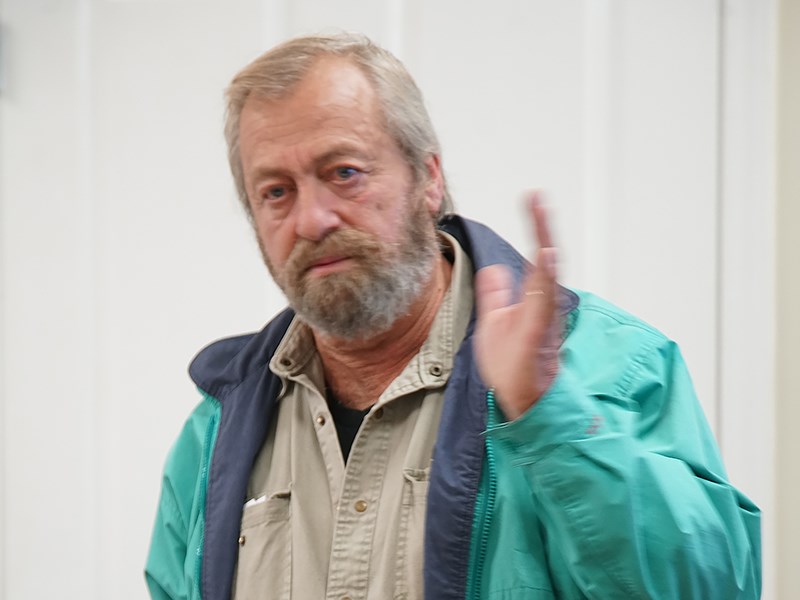A resident who is concerned about transit in Powell River wants the opportunity to meet with a regional committee formed to look at public transportation.
Dave Hodgins, appearing at the Thursday, October 10, qathet Regional District committee of the whole meeting, said he was told the regional district has instigated or started a committee to review transit needs across the whole region. He said the committee was something he was interested in getting on, and that he wanted to come and speak to regional directors about transit.
In presentation notes to committee of the whole, Hodgins stated that his 47-year-old son suffered a major stroke and is now living in Willingdon Creek Village confined to a wheelchair full time. He stated that he and his wife Margaret have written and presented to local governments to try and help improve the handyDART transit system and other transit systems for all persons in the area with mobility deficits.
He outlined frustrations with the handyDART system, which he said is 80 per cent booked by subscribers, such as Vancouver Coastal Health, which take priority. As well, the hours are not amenable to riders, such as not operating on evenings or Sundays, according to Hodgins.
He said he was appearing before the regional board to lobby for public access on the transportation committee.
“I have other groups wishing to join,” said Hodgins. “We need public transit. We need public consultation. It cannot be done by politicians alone. You are not living the life. You need people who are living the life.”
Committee chair Sandy McCormick said she thought Hodgins was referring to the regional transportation exploration working group. She said the committee has the mandate to identify areas of public transportation and make recommendations to reduce barriers.
“It’s very early on in the work of the committee,” said McCormick. “There are three members of the committee, one from the regional district, one from the City of Powell River and one from the Tla’amin Nation. I will make sure your presentation gets the attention of that committee so the members can consider that.”
Hodgins said local governments promote that they are inclusive, but that is not always the case.
“We claim we are not isolating people,” said Hodgins. “We do not have one fully accessible park in the whole qathet region. If you don’t believe me, I’ll give you my son’s wheelchair and him in it and you push it.”
City director George Doubt thanked Hodgins for coming and volunteering to meet with the transportation committee to provide some input and information about the challenges people with mobility issues face in getting around.
“We need to have input from everyone in the community to improve services and I’ll leave it to the committee when they are meeting to determine how to do that,” said Doubt. “I appreciate that you’ve come here and offered to provide that kind of information.”
Doubt said the whole transit issue is a complex one with three services in the area, with the city operating the regular transit service and handyDART and the regional district operating paratransit.
What the city has done, according to Doubt, after Hodgins and others made presentations to the city’s committee of the whole, was to invite BC Transit to a city council meeting to talk about all of the services, the budgets and where improvements can be made.
Electoral Area B director Mark Gisborne said he is in the same situation as Hodgins, with a family member confined to a wheelchair, and it was a big eye-opener dealing with accessibility in the community.
“You’re exactly right, everything I hear about handyDART is it is just not sufficient to get people to family events and community gatherings,” added Gisborne. “It’s just not able to get people to where they need to go.”
Gisborne said it is important to brainstorm on how to come up with something that works for the community and is affordable.



